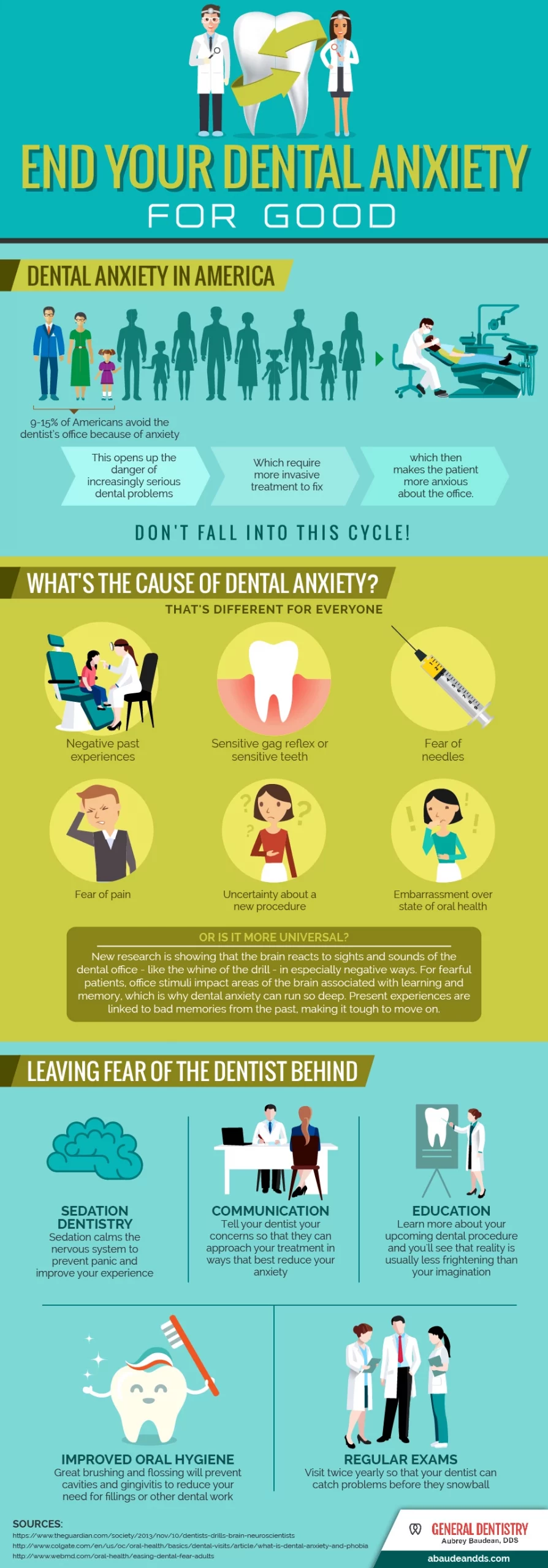How to Help Your Kids Prevent Cavities
You work hard to keep your children healthy, from packing healthy lunches to making sure they get enough sleep night after night (and bedtime excuse after bedtime excuse). And like...
If you’re uncomfortable around a dental drill, you’re not alone. Dental anxiety is a common issue and can prevent people from keeping up with dental treatment. Unfortunately, delaying regular dental care can mean bigger problems and the need for more extensive procedures down the line.
We want all our patients to feel comfortable in the office. And there are ways you can combat your dental anxiety. We’re always here to answer your questions, and we’d love to help you get more comfortable before your next exam or procedure.

Start by talking to us about the anxiety you are feeling. Whether you had a bad experience in the past, cringe at the sound of the drill, worry about pain, or even if you are not sure why you are nervous, getting it out in the open is the first step to conquering your fear.
Dentists are trained to deal with dental anxiety, and because of its prevalence, most have treated several patients with varying levels of anxiety. If your dentist knows about your nervousness, he or she can take steps to make your visits more comfortable. Dr. Baudean has experience with helping patients through dental anxiety, and we are here to help.
If pain is a concern, find out about different pain management options and how they work. The efficacy of a pain-reducing measure may vary from person to person. Discuss how to signal that you are uncomfortable or if you need a break.
It is also a great idea to ask for ways to handle your anxiety. Utilizing headphones, or other distractions like a stress ball or television, are great options to discuss. You may also want to consider researching breathing or mindfulness techniques to help you calm your nerves.
Once you have communicated your concerns, the next step is to know more about what is happening. Having knowledge of your treatment often helps to reduce anxiety. Knowing exactly what is happening will prevent surprises and will often make the procedure less scary by removing uncertainty. Once again, communication is key.
In addition to more typical pain reduction methods like anesthetics, there are sedation options available to calm your nerves and make your experience more relaxing. Medications ranging from prescription anti-anxiety treatments to conscious sedation may be options to consider. Many patients silently suffer with dental anxiety needlessly because they are not aware of these options.
Be proactive about your dental health by turning your negative emotions surrounding dental treatments into a positive habit. Remind yourself that excellent oral hygiene means reducing your risk of needing many dental procedures. Brush twice a day for two minutes. Angle your brush towards your gums and brush gently with a fluoride toothpaste. Floss daily as well. The healthier your teeth, the easier your dentist visits will be.
The less often you visit the office, the scarier a place it becomes. And without regular care, you’re more likely to have cavities or gingivitis that will require more invasive treatment. Plus, many patients who spend some time away from the office feel self-conscious about their dental problems and this dissuades them from getting back into regular exams.
No matter how long it’s been, we will always be happy to see you – schedule your next cleaning today. And make sure to discuss your feelings of anxiety with our staff. We are trained and experienced with dental anxiety and happy to help you get through your fears so you can have a healthy smile without the stress.